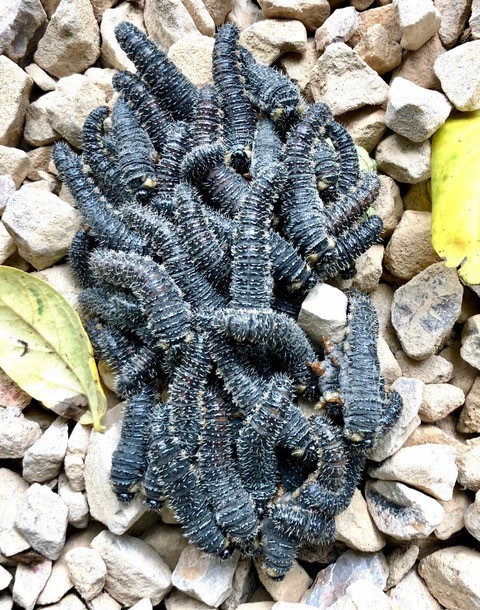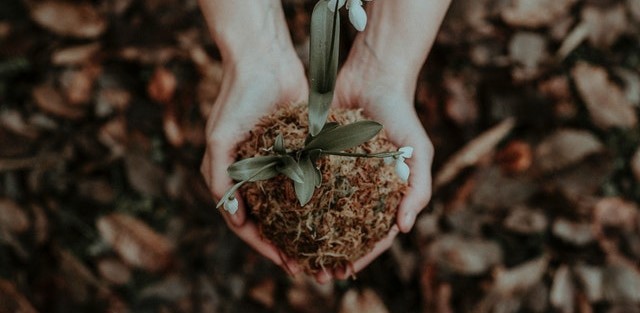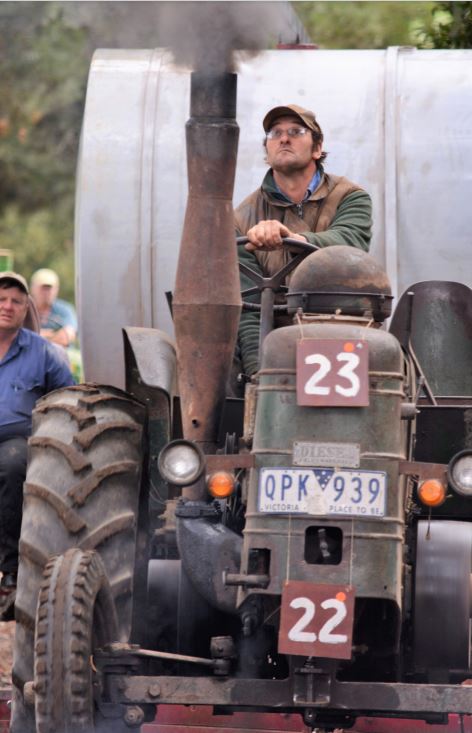November 12th, 2021Glen About the house
Space invaders? Maybe not.

But these UFOs (ugly foreign organisms) are certainly as unwelcome and maybe as destructive as any invasion of “little green men” from Mars.
They are, in fact, grubs of one of the native wasps called sawfly and, in this case, called “spitfire grubs”, so-called because of their nasty habit of spitting out a skin- irritating substance when in danger of attack. They also cluster in a swarming mass as a protection from birds and other predators.
Spitfire grubs leave their groups at night to feed on the leaves of their host tree. When fully grown they move to the ground to pupate into their last stage of development as wasps.
Unfortunately for them this finger-sized bunch who, after feasting on my enormous eucalyptus tree, decided to congregate on the adjacent gravel path, which may as well have been concrete. They were quickly dispatched in a shower of pyrethrum spray and were then added to the compost heap.
Normally, established trees need little protection from these caterpillars although young trees can often be severely affected. This usually applies to most eucalyptus feeders as eucalypts have tremendous powers of recovery from most invasions and will usually grow out of them in no time.
Infested young trees can be protected by simply removing any grubs or hitting them with a dose of pyrethrum or similar organic concoction. In most cases it is better to live with our native insects rather than fight against them and risk harming the good guys.
Fruitful harvest
After recent good rains and intermittent warm, sunny days the new season’s fruit on pome (apple and pear) and stone fruit trees should be filling out rapidly. Where the set of fruit is good some trees could be really overcrowded and although Mother Nature frequently rectifies this by allowing some fruit to drop it is not really wise to rely on this.
In some severe seasons of floods or drought nature can go a bit too far and cause a crop failure but this usually indicates that the trees are not happy, possibly due to either not enough or way too much water.
We can, at least, make sure of large, well-formed fruit by thinning out the surplus leaving only one or two fruits on each growth and burning the surplus – to prevent the ever-present fruit fly infection.
Peaches, plums, apricots, nectarines and similar fruit will benefit from a periodic dressing of garden lime because, if this is deficient in the soil when the fruit begin to form, the fruit will begin to drop. Soils with a high pH (alkaline) seldom require such a dressing but it is worthwhile noting in seasons of high rainfall such as we have been experiencing this spring.
Deadheading
This is the term commonly used when we remove the spent flowers from annuals and perennials. Its real purpose is to prevent, as far as possible, the formation of seed as well as keeping the flower bed looking tidy.
Once a plant has formed several seed pods it will direct its energies into maturing and nourishing those instead of producing more new growth or flowers. After all the provision of future generations of the species is always utmost in the plant’s being.
Another benefit in keeping the beds seed free is that many annuals can feed seed early and if that is left to ripen and drop and germinate they will only serve to choke existing plants, adding nothing to the display.
Worse still, stray seeds can often find their way onto adjoining garden areas and become no better than weeds. After all, weeds are only plants that shouldn’t be there.
Got a gardening question? Email glenzgarden@gmail.com










